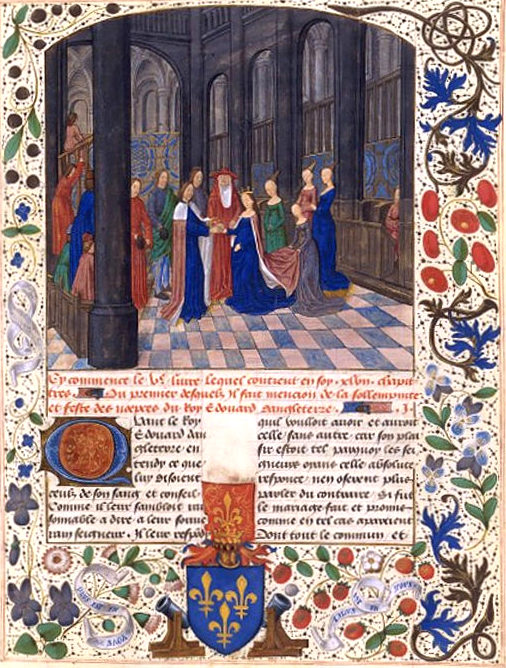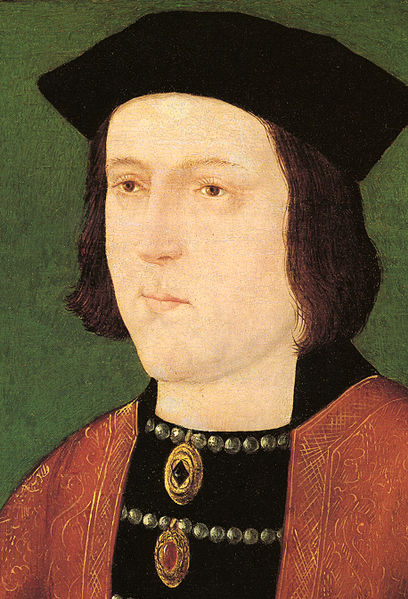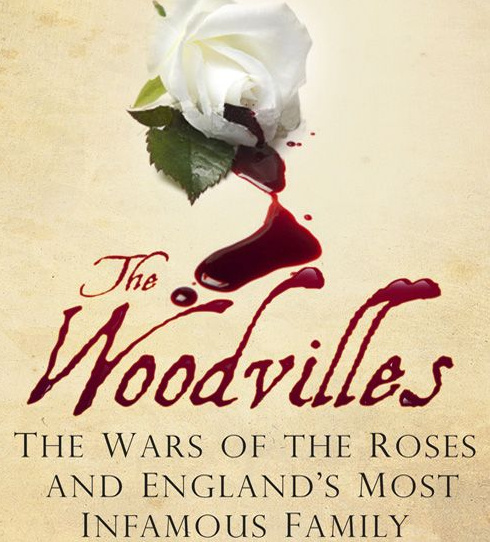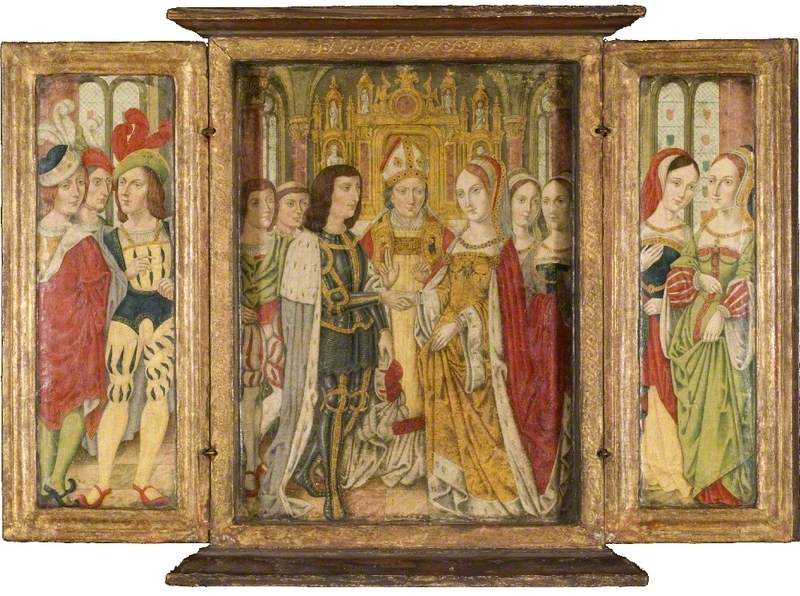Decades before his grandson King Henry VIII scandalised Europe with his six marriages, King Edward IV made his own controversial match. Defying convention, the York king took a beautiful Lancastrian widow as his bride. The love-match between Edward IV and Elizabeth Wydeville outraged the nobility, it would prove fatal to his relationship with the “Kingmaker”, the earl of Warwick and arguably led George Duke of Clarence on his path of self-destruction. The scandal left Elizabeth vulnerable after Edward’s death, even after two decades of a happy marriage.
To get behind the many myths that surround Elizabeth Wydeville, one of England’s most slandered Queen consorts, we firstly need to examine the catalyst. Susan Higginbotham, author of The Woodvilles, joins us today to discuss the marriage of King Edward IV and Elizabeth Wydeville.
The date of Edward IV and Elizabeth Wydeville’s secret marriage is often alleged to be May 1st, May Day. Do you think dating the marriage to May Day is more of a romantic tradition and has perhaps helped reinforce allegations of witchcraft against Elizabeth?
It’s difficult to say, because contemporary sources do give the May Day date and no other, and the May date is certainly logistically possible. But Elizabeth’s dealings with William Hastings later that year suggest that she had not yet married the king, so I’m inclined to believe that the marriage took place in late August or early September, and that the date reflects romantic tradition. Certainly the May date has been used to bolster the notion that Elizabeth used witchcraft to snare her man–one particularly imaginative modern writer, who purports to be writing nonfiction, posits that the wedding took place after a wild night of bacchanalian Walpurgisnacht reveling in the woods, although not even Elizabeth’s contemporary enemies came up with such an accusation against her.

What about the idea that Elizabeth refused to sleep with Edward unless he made her his wife? The contemporary stories seem to allude to her simply refusing to become his mistress, do you think that the idea she was ‘making a play’ for the crown is a modern one?
I don’t think Elizabeth could have ever anticipated that Edward would act so unorthodoxly by making her his queen. I believe the notion that she set out to become queen probably reflects the later relationship between Henry VIII and Anne Boleyn, who did indeed at some point reject the idea of being Henry’s mistress in favor of being the queen. But of course there were factors at play such as Henry’s frustrated desire for a male heir that weren’t there in the case of Edward, and there was precedent at that point for a commoner becoming queen–that precedent being Elizabeth herself.
So while the nobility made much of Elizabeth’s alleged commoner roots, did Edward’s subjects voice much objection to the marriage?
Not that’s recorded. I suspect that after the unpopular Margaret of Anjou, whose marriage was associated with the English reversals in France, that many people might have even been relieved at the king’s choosing an English bride.
Is there really any evidence that Edward may have been tiring of Elizabeth as they both aged and she would have lost her influence over him in place of a mistress?
Not that I know of. It’s been claimed that Edward omitted her from the list of his executors in his 1483 will (which hasn’t itself survived) and that this is shown by the fact that she’s not listed in the executors who met at Cecily, Duchess of York’s residence in May 1483. This is a good example, unfortunately, of how evidence has been misread to make a case against Elizabeth, because the account of the meeting doesn’t purport to be a complete list of the executors from the 1483 will, and Elizabeth in any case was in sanctuary at the time and wouldn’t have been at the meeting anyway.

What about Edward’s own reputation for licentiousness? It seems we’ve little actual evidence of illegitimate children and mistresses and one of those illegitimate children Grace seems to have formed a relationship with Elizabeth and attended her funeral. Do you think that perhaps even Edward’s reputation has been subject to some exaggeration?
I think it has been. Some contemporary sources did comment on his licentiousness, but they’re all rather vague on specifics. If Edward had truly been the playboy on the epic scale that some claim, one would think his exploits would have made more of an impression in the historical record, as have those of Charles II, for instance. In a way, the accusations against him remind me of H. L. Mencken’s famous definition of Puritanism: “the haunting fear that someone, somewhere, may be happy.”
It’s interesting that only two illegitimate children for Edward, Arthur and Grace, have been soundly documented–the same number that can be documented for his younger brother Richard, who nonetheless has acquired a reputation as something of a prude.
Their marriage is famed as a love-match, what is your opinion on their long and seemingly stable relationship?
Sadly, for a love-match, we know very little of the couple’s personal relationship–we have few glimpses of their private life, as we do for Henry VIII and his queens. There’s certainly no evidence, though, that Edward ever became disenchanted with Elizabeth.
Join us for an in-depth look at Elizabeth Wydeville this week
Tuesday 30th September: David Baldwin discusses Elizabeth’s role as Queen Consort
Wednesday 1st October: Arlene Okerlund discusses Elizabeth’s life after the death of Edward IV
Thursday 2nd October: David, Susan and Arlene all return for a special history salon on Elizabeth Wydeville and her reputation.
We have an eBook to give away courtesy of The History Press. To win a copy of The Woodvilles by Susan Higginbotham just leave a comment below by Sunday the 5th of October.
 Visit Susan at History Refreshed and find out more about her books at susanhigginbotham.com.
Visit Susan at History Refreshed and find out more about her books at susanhigginbotham.com.
I am the author of two historical novels set in fourteenth-century England: The Traitor’s Wife: A Novel of the Reign of Edward II and Hugh and Bess. Both were reissued in 2009 by Sourcebooks.
My third novel, The Stolen Crown, is set during the Wars of the Roses. It features Henry Stafford, Duke of Buckingham, and his wife, Katherine Woodville, as narrators. My fourth novel, The Queen of Last Hopes, features Margaret of Anjou, queen to Henry VI, and is set mainly in the earlier years of the Wars of the Roses. It was released in January 2011. My fifth novel’s, Her Highness, the Traitor, heroines are Jane Dudley, Duchess of Northumberland, and Frances Grey, Duchess of Suffolk, who respectively were the mother-in-law and the mother of Lady Jane Grey.
Buy The Woodvilles by Susan Higginbotham
 The Woodvilles by Susan Higginbotham, Published by The History Press 2013.
The Woodvilles by Susan Higginbotham, Published by The History Press 2013.
From an acclaimed historical fiction author comes the first nonfiction book on the notorious and perennially popular Woodville family, investigating such controversial issues as the fate of the Princes in the Tower and witchcraft allegations against Elizabeth and her mother. In 1464, the most eligible bachelor in England, Edward IV, stunned the nation by revealing his secret marriage to Elizabeth Woodville, a beautiful, impoverished widow whose father and brother Edward himself had once ridiculed as upstarts. Edward’s controversial match brought his queen’s large family to court and into the thick of the Wars of the Roses. This is the story of the family whose fates would be inextricably intertwined with the fall of the Plantagenets and the rise of the Tudors: Richard, the squire whose marriage to a duchess would one day cost him his head; Jacquetta, mother to the queen and accused witch; Elizabeth, the commoner whose royal destiny would cost her three of her sons; Anthony, the scholar and jouster who was one of Richard III’s first victims; and Edward, whose military exploits would win him the admiration of Ferdinand and Isabella. This history includes little-known material such as private letters and wills.



